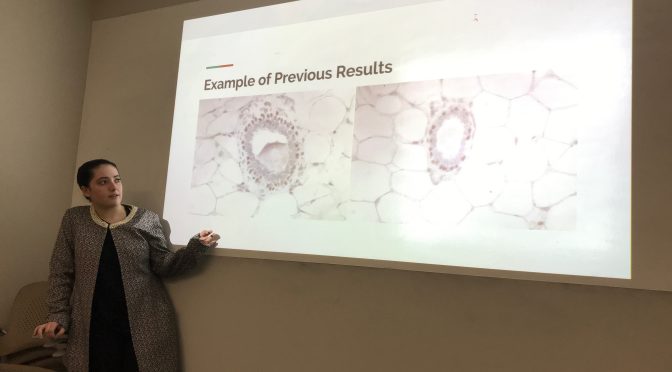Guest Post by Luana Melo, UMass Boston
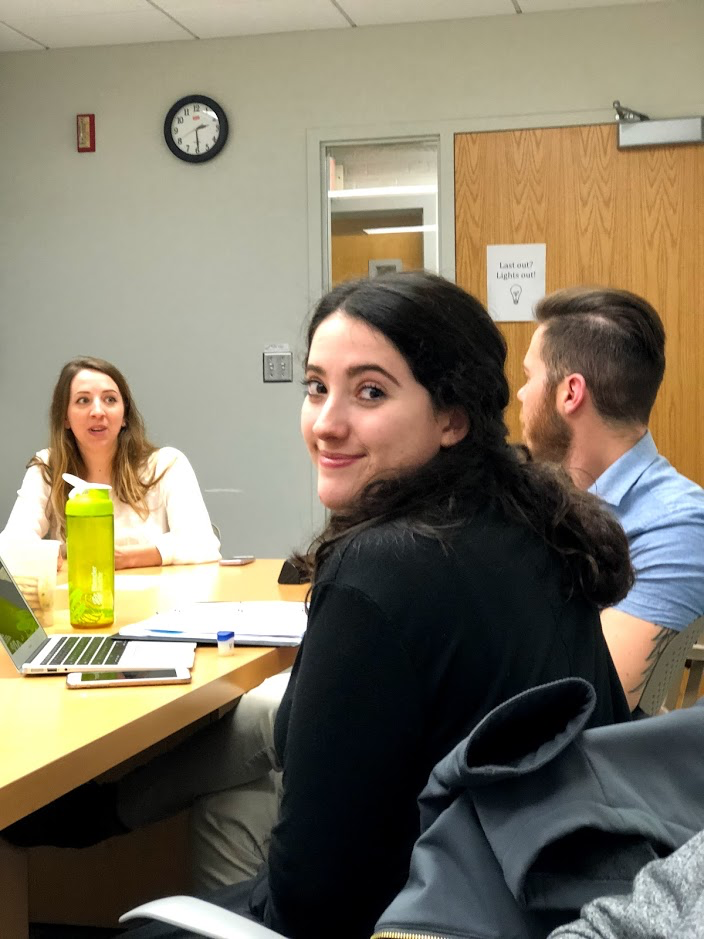
When I thought about how I wanted to spend my three-week winter break, I envisioned twelve-hour Netflix binges and waking up at 11 am every day. What I didn’t expect was to be working in a lab, and attending workshops Monday through Friday, from nine to five pm. That is what my break was like, however, and I don’t regret a second of it (except the ones I spent stuck on the red line after snowstorms). I was privileged enough to have been accepted into the Tufts Winter Enrichment Program: The Pathway to PhD, an experience I will never forget. Those three weeks taught me more than I had could have imagined, and I walked out a better person and scientist.
Over the span of three weeks, I got to participate in seven different research projects, attend workshops, seminars, and interact with graduate students. The seminars were twice a week and were an opportunity for self-reflection and personal statement development. My lab-mates and I used to refer to it as group therapy jokingly. The workshops ranged from a variety of topics, but their general premise was to prepare us for graduate school and develop our professionalism. They were all incredibly helpful, and answered a lot of the questions we all had and made us all feel more prepared to apply not just to graduate school but research programs as well.
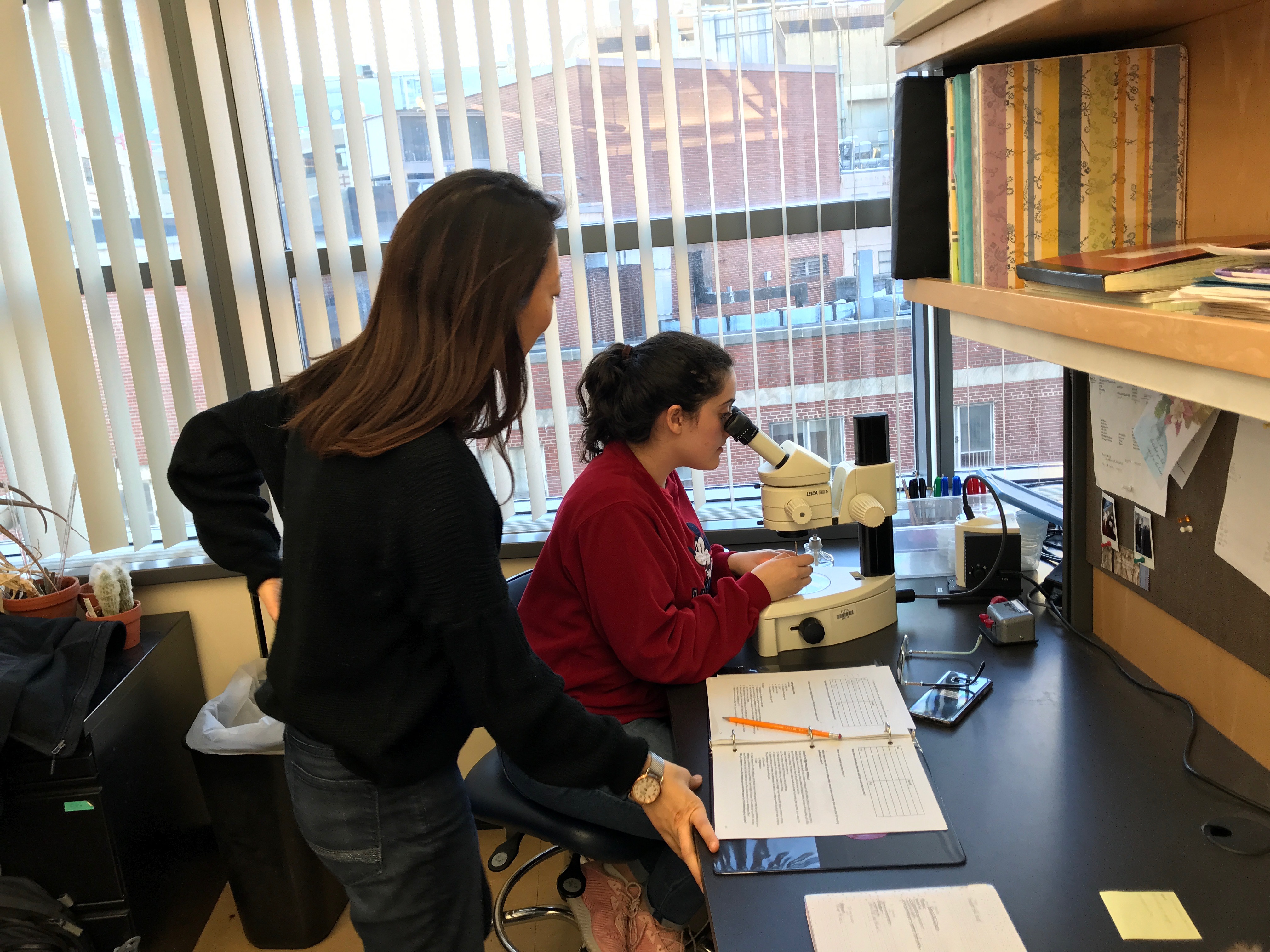
Despite how helpful the seminars and workshops were, I have to say the best part about the program was the actual research experiments. The research we did was exciting; some focused-on microbiology, some on immunology, and some on neuroscience. My favorite project was the one focused on microbiology. The research was based on the vieSAB operon in Vibrio cholerae, which aimed to determine motility and biofilm-production phenotypes of different VieA mutants in the presence of various nutrients. It was interesting to isolate and test different variables and see what parts of the operon pathway got disrupted. We as a group decided that there needed to be modifications to the experimental design to reproduce the experiment with fructose or sucrose instead of glucose.
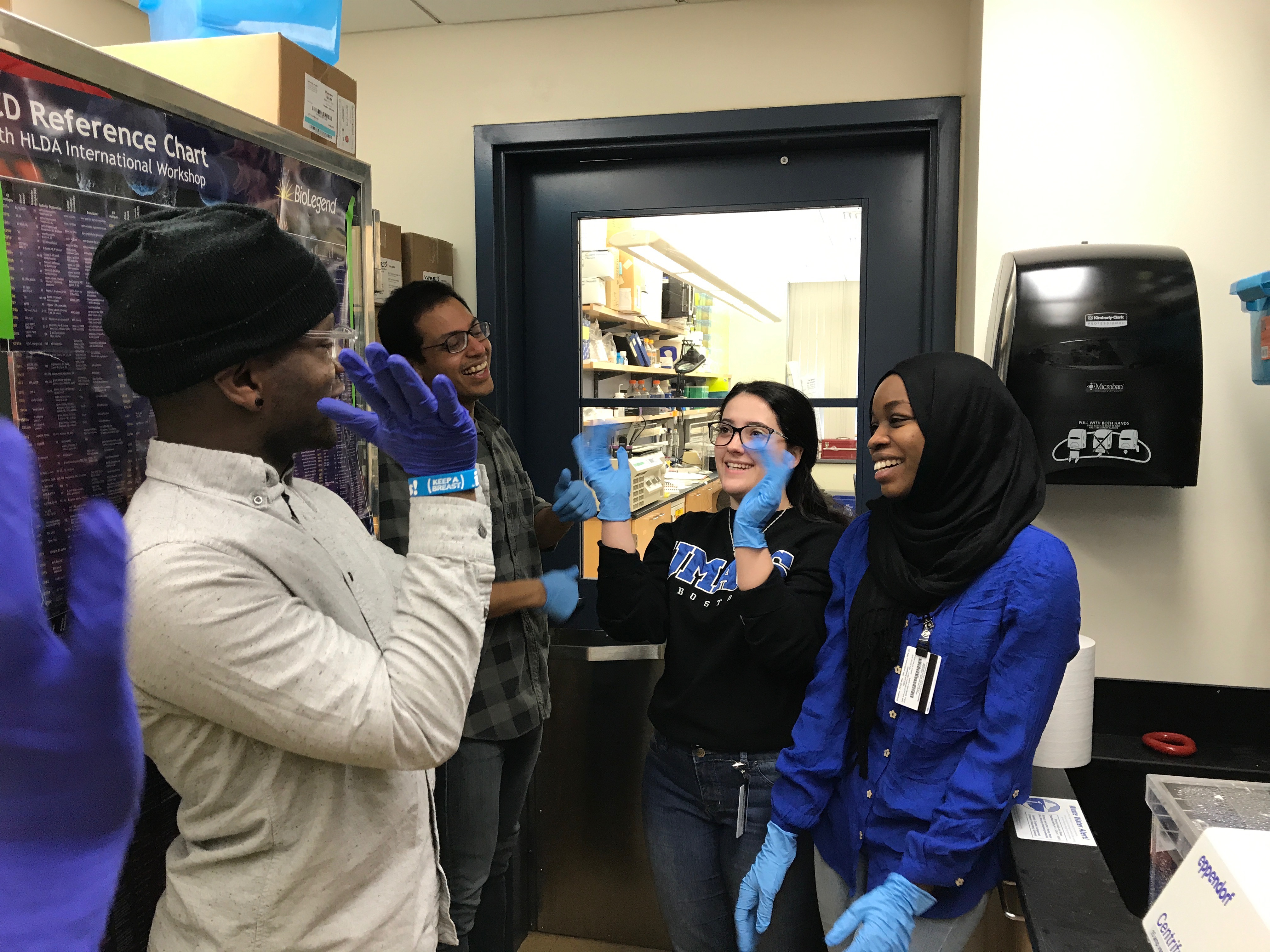
That ability to reflect and adapt the experimental design, to think critically about future improvements, and what factors are to be excluded are just some of the valuable skills I learned in the program. I learned about the scientific process and saw examples of it being used, for example, to consider unaccounted factors that could be influencing the results, to determine the relative efficiency of a buffer used, or to think about how the pH might be too high/low, etc. If the scientific process was a book and I an editor, I’d say the point is to look for the plot holes.
Another aspect of the program I enjoyed was working with the graduate students. They were enthusiastic about working with us and teaching us. It was awesome getting to interact with them; they were eager to show us anything we were curious about and to answer any of our questions relevant to graduate school or not. One of my favorite interactions was when a graduate student was telling my lab-mates and I all the frustrating and discouraging things about being a graduate student. She followed it with the gloomiest monotone “but I’m living my dream.” On the elevator ride home, we all laughed about it.
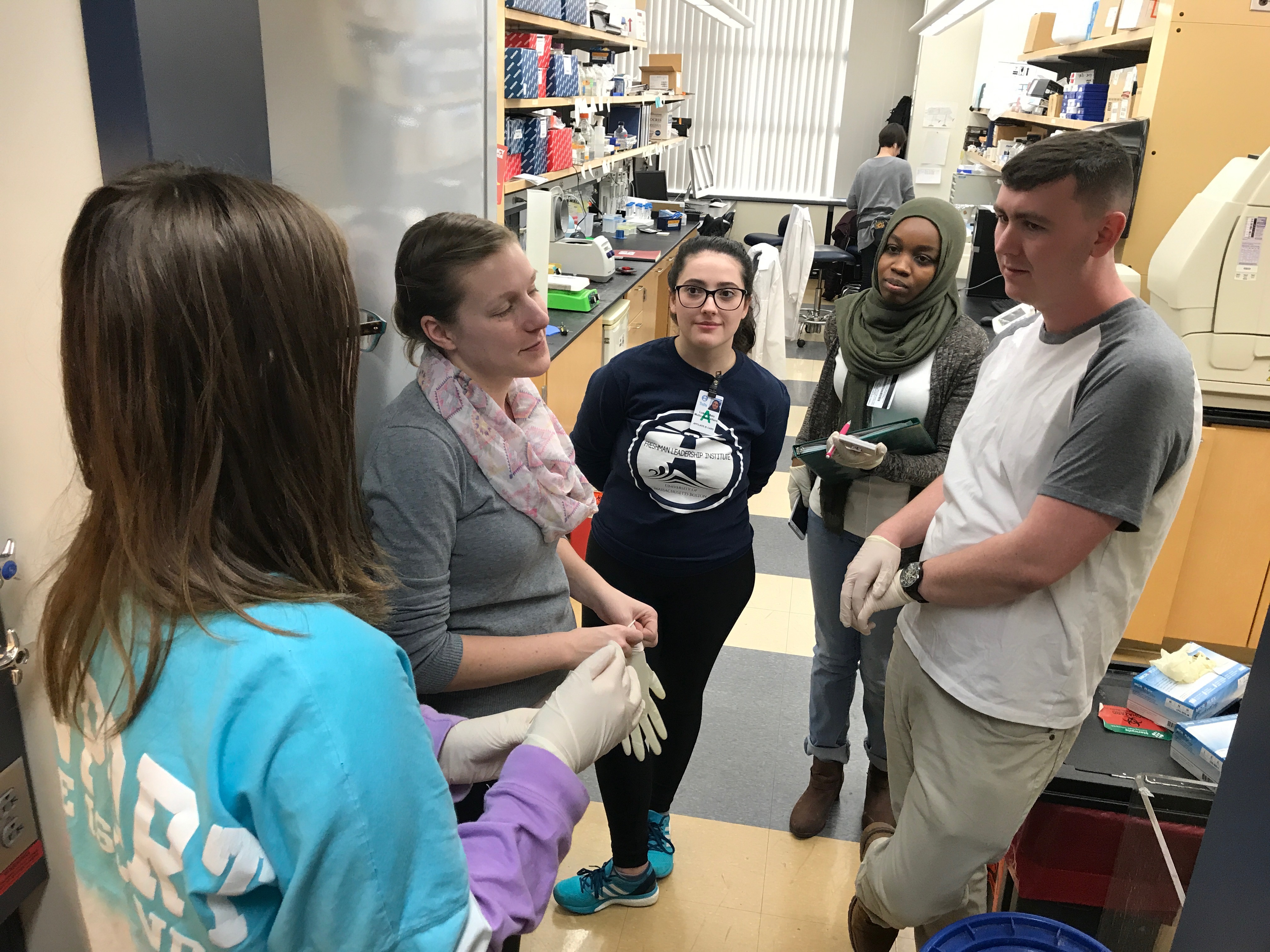
This program was a valuable experience that I think undergraduate students could benefit from immensely. I can’t think of a better way to spend winter break than amongst imaged neurons, and secondary antibodies.

